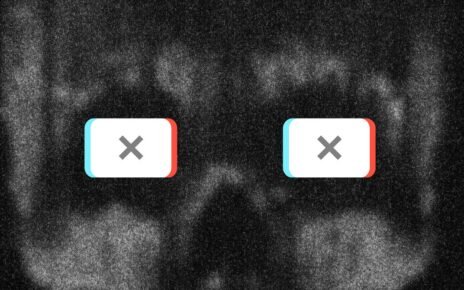All of this underscores that, unlike 10 or 15 years ago, there is now a greater understanding that “content creation is labor,” says Kate Miltner, a lecturer in data, AI, and society at the University of Sheffield’s Information School. “It is time-consuming and often poorly remunerated labor for the most part,” but far more people make entire careers out of being content creators than a decade ago, Miltner adds, “and it feels like an ethics of plagiarism, in addition to trademark/copyright, have come into play.”
Simply put, people get this shit now. A decade after “on fleek,” creators are much smarter when it comes to ownership of their creations. “A series of conversations and discourses about cultural appropriation and where a lot of contemporary (online) language comes from (Black communities, queer communities) have happened since Peaches Monroee,” Miltner says. Lebron may have felt like she dropped the ball because of a lack of resources, but the resources she did have were other creators who knew how to call out what had happened. She also had companies like Netflix, which—perhaps anticipating blowback for just hopping on a viral trend—just asked that Lebron curate a “Very Demure, Very Mindful” list.
Will this happen every time? No. Memes built from everyday language will always be hard to trademark—Miltner cites Fox Media’s unsuccessful attempt to trademark “OK Boomer” as an example. But now that even Hawk Tuah Girl has merch, the possibilities of getting credit for your meme, or even cash, don’t seem as unlikely as they did before. Might your meme get ingested and reinterpreted by an artificial intelligence bot? Yes. Will that bot be able to make a T-shirt? Er, well, that might happen, too. Creators, especially minority creators, will always have to fight to keep control of their works once they’ve been unleashed onto the world. Now, though, they have a few more coaches in their corner.
Instagram content
This content can also be viewed on the site it originates from.
Loose Threads
Leave Chappell a-Roan. After speaking up about her fans’ “weird shit” on Drew Afualo’s podcast The Comment Section in June, pop star Chappell Roan took to TikTok to post a pair of videos thoughtfully asking her followers to just stop with all the uncool behavior. “I don’t care that abuse and harassment, stalking, whatever, is a normal thing to do to people who are famous or a little famous or whatever,” Roan said. The videos now have a combined 27 million views and are garnering Roan praise for being the rare celebrity who can set boundaries with fans.
Silence of the Lambs as a romantic comedy. The title says it all. This idea has actually been around for quite some time—since, like, 2017, maybe? But it’s making the rounds again. Perhaps because Donald Trump keeps talking about Hannibal Lecter.
BritPop is not optimized for SEO success. So says this Thread, which points out band names like Oasis, Blur, and Pulp aren’t very unique in Google’s eyes. Still seems like people will be able to find out about the Oasis reunion and upcoming tour, though.
The humbleness of Glen Powell. An anonymous producer recently told The Wrap that Glen Powell is the kind of movie star that gets people to go see movies, “unlike Ryan Gosling whose appeal is mostly limited to female audiences.” Powell replied with a tweet referencing Gosling’s iconic Barbie song, saying, “Gosling is a legend. I’m just Glen.”




